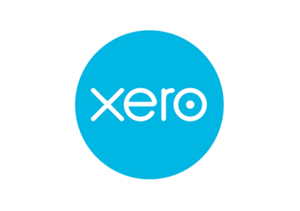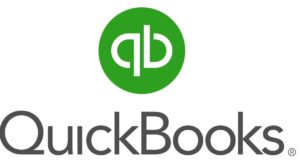Blog
Posted March 4, 2020
Bookkeeping Software – What is the best for your business?
There are so many online bookkeeping software packages available at the moment it can be difficult to decide which one is best for your business.
I have outlined below the 4 main software’s available and the businesses we feel they are most suited to.
Xero
Xero was developed in New Zealand before being launched in the UK, it currently has over 2m subscribers and is arguably the market leading cloud software product in the UK.
Xero offers 3 levels of subscriptions to the public, a starter, full and premium service with 2 additional ledger accounts being offered via accountants and bookkeepers.
Xero also has various add-ins including payroll, expenses, CIS and projects.
Xero also has a significant number of third-party apps that integrate directly into the software.
Xero is best for:
Building contractors who operate CIS and want to keep track of income and expenses attributable to different projects.
Retailers needing to keep track of stock – there are some great POS and stock tracking add-ins.
Downsides of Xero
Unless your business has very few transactions you will need to use the full-version (priced at £24 plus VAT per month), at the moment if you buy the ledger version through your accountant you can’t add payroll to it and you also can’t raise and reconcile sales invoices.
Sage Cloud
Sage has been developing and selling accounting software in the UK for over 30 years and is a well know household name.
Sage also offers two levels of subscriptions, starter and the accounting version (both are priced at a similar level to Xero).
The range of add-ins let Sage down, they only allow certain verified partners to integrate with Sage, but because of this you know the partners will have been thoroughly checked and you won’t need to check out all the different options yourself as Sage has done this for you.
Sage is best for:
We love Sage Starter for smaller businesses, unlike Xero it doesn’t have a restriction on the number of transactions and you can raise your sales direct from Sage start, so whilst it doesn’t have a fully functioning purchase ledger Sage start does allow you to keep a sales ledger – helping you track your debtors.
The Sage support line is significantly better than any other software and is open 24/7.
Downsides of Sage Cloud
In my opinion there are two main downsides, the payroll (which integrates with both start and accounting) is capped at 25 employees, this means it wouldn’t be appropriate for smaller businesses with a high number of staff.
The lack of integrating apps, including a decent stock tracking system lets Sage down.
Quickbooks
Quickbooks in American designed bookkeeping software with three options, simple start, essentials and plus. As with Sage start, Quickbooks simple start has unlimited transactions with a sales but no purchase ledger.
Quickbooks has some great add-ins, we particularly like Fluidly Lite (a free version of Fluidly) which was released in late 2019, this software allows you to prepare a 90-day cashflow forecast from the information in your Quickbooks account.
Quickbooks Essentials also allows you to use multi-currency (not available in Sage Cloud and only available on the premium version of Xero).
Quickbooks is best for:
Businesses dealing in multi-currency, import/export businesses that want to use a cloud software with the functionality of a larger desktop based system.
Downsides of Quickbooks
Quickbooks is probably the least intuitive of cloud software and with the American terminology can be difficult to get used to if you are already familiar with other software. However, once you get used to it, it is easy to use and you won’t look back. It is also difficult to do some transactions, payments on account are quite complicated, but once you know the work around it’s plain sailing.
FreeAgent
FreeAgent has improved significantly in the past 18 months, it has recently been bought by NatWest/RBS and is given free as part of their small business banking offering.
FreeAgent is best for:
FreeAgent is great for small businesses, it doesn’t do “complicated”, it auto calculates the depreciation and corporation tax provision as you go along meaning that if you print off your P&L you know exactly what reserves are available for dividends.
We would recommend FreeAgent to any small business that is using a NatWest or RBS small business bank account where the accounts are very straight forward – eg businesses where there is no stock, large quantity of assets, WIP and foreign currency.
Downsides of FreeAgent
One of the main downsides is that once you have posted a VAT Return it locks down all the transactions, making adjustments difficult and if your accountant needs to make changes it can take them longer. The auto calculation of the depreciation can through up errors if you have a lot of different asset categories so we would only really recommend FreeAgent for small businesses.
We can help you choose the best bookkeeping software for your business
At Whitesides we believe in choosing the best bookkeeping software for your small business, we will advise you on the best software, set-it up and provide in-depth 1-2-1 training on how to use it for your business.
Because we like to use the best software for every business (rather than only offer one choice) we are partners with Xero, Sage, Quickbooks and FreeAgent Friendly.
We offer training and support on the following software:
Xero
Sage (Sage Start, Accounting and Sage 50)
Quickbooks
FreeAgent
Exchequer
SERVICES
LATEST NEWS
CATEGORIES
- Blog (137)
- Business Advice (45)
- Just For Fun (16)
- Tax Tips (30)
- Video (8)










